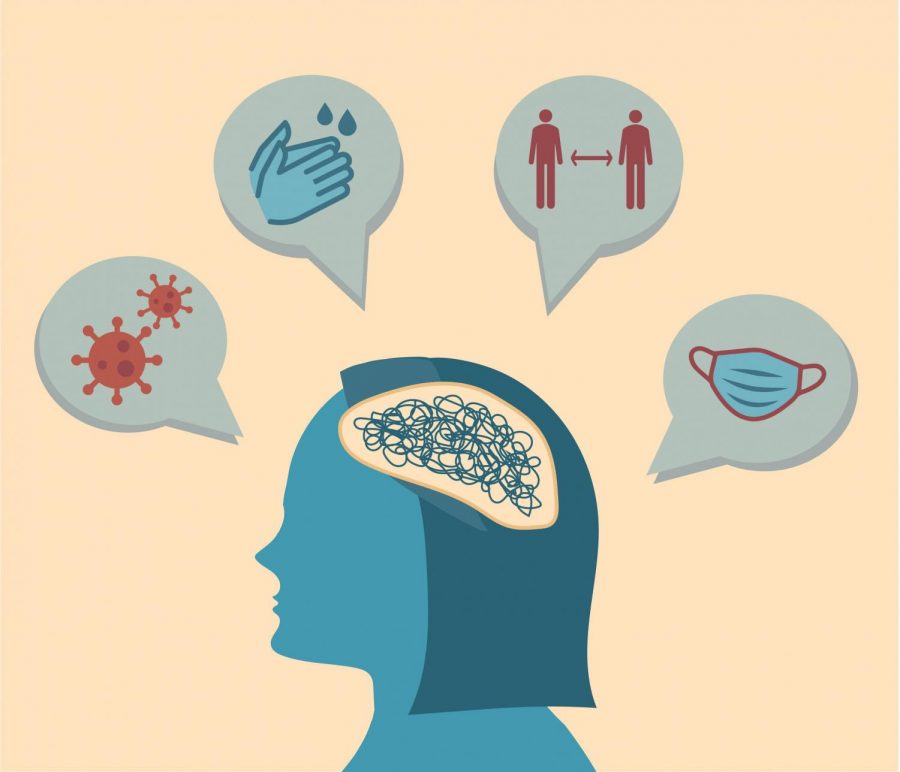Mothers Bear the Brunt of Pandemic
In the wake of the largest global health crisis of our lifetime, there is an abundance of information regarding actions we can take to protect ourselves and others’ physical well-being. We can wear masks, wash our hands and practice social distancing. However, there is considerably less information for handling the emotional toll of the pandemic.
As a result of COVID-19, most schools have implemented either partially or entirely online learning for students. When children were forced to learn virtually, they lost the luxury of a pre-structured day and the in-person support of teachers to aid their learning process. Children react to the stress of this by misbehaving and facing difficulties orienting themselves to goal-driven behaviors. This burdens parents who must take on a more active role in their children’s schooling. For many parents, the responsibilities they held prior to COVID-19 still require their time and energy as well.
During the COVID-19 pandemic, mothers are enduring some of the most challenging circumstances. Before COVID-19, mothers already endured a phenomenon known as the double day, a clash between modern-day egalitarian expectations of women to work outside of the home and the continuation of traditional gender roles within the home. Many mothers are expected to contribute fiscally to their household, yet, at the same time, a larger percentage of housework and childcare still falls upon them. This has career impacts — increasing instances of sick leave and work-family conflicts — as well as psychological consequences. Those who are experiencing the combination of a full day of paid career work and unpaid labor at home face tremendous stress and fatigue as well as “significantly lower levels of general well-being, and a lower satisfaction with their general life situation.”
For mothers, especially, juggling these responsibilities is an impossible task. The added labor and emotional toll they pay on behalf of their children, partners and families goes unnoticed and underappreciated. All of the aforementioned responsibilities and adverse effects of the double day are exacerbated. For example, fathers described an increase from “an average of 33 hours per week spent on child care prior to the pandemic … to 46 hours during the pandemic,” while mothers reported an increase in average time spent on child care from “68 hours … in a given week before COVID-19 struck, and 95 hours thereafter.” With 168 hours in a week — 40 of those spent at work and 95 spent in childcare — there’s barely enough time for mothers to sleep, especially during a time of heightened stress. In the remaining hours, a mother likely spends time worrying about her children’s health, safety and quality of education rather than taking care of herself. With these factors draining both energy and mental well-being, it’s no wonder clinically significant rates of anxiety and depression for mothers have risen. Something has got to give, and for a lot of mothers, that means sacrificing their careers, aspirations, much-needed sleep and mental health for the sake of their family.
Since humans are social creatures, social support is a good method to mitigate stress. We can provide social support by calling our mothers often and being present and empathetic while we listen to them, demonstrating that we are a reliable source of support. We can practice mindfulness, which refers to being aware of our surroundings, feelings, thoughts and physical sensations as they arise. Mindfulness has roots in Buddhist meditation, and research has suggested that it helps people deal with symptoms associated with mental health problems and effectively handle stressors. We can practice mindfulness with our mothers through meditation, but I prefer to practice it through present listening. We can do this by offering our full attention, refraining from being critical and being aware of how our conversation partner’s responses make us feel. Practicing mindfulness is difficult yet rewarding as we learn to be more kind and respectful of ourselves and others. Finally, we can engage in pleasurable activities, also known as self-care. We can use self-care to recharge in order to equip ourselves to deal with our problems and support our mothers. At the same time, our moms can use self-care to recharge after a grueling day, too.
Even a small amount of support could go a long way. It’s crucial to recognize that many mothers are struggling right now due to unattainable expectations and difficult circumstances. There is not enough time in the day to meet all of the many expectations that are placed upon mothers, especially during a pandemic. Perhaps this crisis is what it will take to make us reevaluate the roles mothers have been forced into over time.
Giovanna Rafanello, FCRH ’23, is a psychology major from Madison, N.J.













































































































































































































